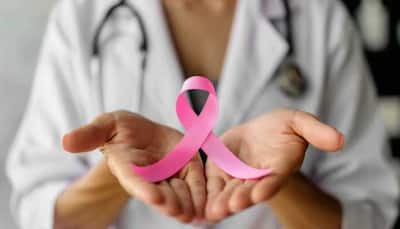Breast cancer has become one of the most frequent cancers that afflict women all over the world. Early detection and treatments have enabled a number of women to survive and lead completely healthy lives. However, many others unfortunately relapse even after being cancer-free for years after treatment. Signs of cancer relapse could be life-changing in terms of prognosis and quality of life.
Dr. Shubham Garg, Director & Senior Consultant, Surgical Oncology, Dharamshila Narayana Superspeciality Hospital, Delhi shares warning signs of breast cancer relapse.
Understanding Breast Cancer Relapse
Breast cancer relapse indicates that the cancer has returned after a few years in remission. The return may occur in different regions of the body and is classified as local, regional, or distant reocurrence. Local reocurrence means the cancer has returned to the area where it first appeared, such as the breast or chest wall. Regional reocurrence means that the cancer has invaded surrounding lymph nodes, often those beneath the arm, near the collarbone, or around the breastbone. Distant reocurrence, known as metastatic or stage IV breast cancer, occurs once cancer spreads to other organs of the body, namely the bones, liver, lungs, or the brain.
Each of these might show varied symptoms and will each require a different approach to treatment. A relapse may occur months or even years after the first treatment, so long-term follow-up, as well as regular check-ups, are critical for early detection and effective management. Staying alert to body changes and keeping up with follow-up appointments will help in prompt detection of any signs of relapse.
Here are some signs to look out for when in remission:
One of the most predominant signs is the emergence of a new lump or a thickened area in the breast or the chest wall. The skin may look dimpled or red, flaky or discoloured. There could be lumps or bumps under the breast or chest, nipples changes like discharge or flattening inward, unusually firm breast tissue, recurrent pain in the area surrounding the breast or on it, thickening of the skin around the scar if a mastectomy was previously performed. Being vigilant about one’s health and bodily changes can help identify these signs in their early stages.
It is quite likely that breast cancer will come back in regional lymph nodes. Symptoms of reocurrence can either be noticeable or subtle and can develop in the areas around the collarbone and neck, or armpit lymph nodes. These signs can manifest initially as a firm or tender distention in these areas. Other possible symptoms are pains or numbness, tingling sensation around the arm or shoulder on the affected side. There could be significant difficulty while lifting arms, reaching for things or doing daily chores, which can be easily mistaken for muscle strain, infection, or fatigue. Periodic follow-ups after breast cancer treatment are very important. Notify a health practitioner immediately if you spot any of the above-mentioned symptoms or signs.
When cancer spreads away from the breast, it is then termed as distant or metastatic breast cancer. The symptoms will depend on the organs that are affected. However, many are common and often not easily identifiable without medical tests. For instance, when cancer has spread to bones, one usually has constant pain in the hips or back or the ribs. The bones become brittle, increasing the chances of fracture, and swelling or tenderness may also exist in some affected areas or joints. Symptoms include upper abdominal pain and discomfort, jaundice (yellowing of skin and eyes), extreme fatigue, and unexplained weight loss when the liver is affected.
If the lungs carry metastasis, this may manifest as a persistent cough with shortness of breath, chest pain, and several infections of the lungs. When the cancer spreads to the brain, symptoms may include recurrent headaches, seizures, vision problems, dizziness, confusion, or even alterations in mood and behaviour. Talk to your doctor about any new or unusual symptoms. Early diagnosis of metastasis is vital for better treatment options.
Besides specific symptoms discussed above, there are some general symptoms that may indicate a relapse. These include: being exhausted all the time, even after resting well; fevers or night sweats that will not let up; unexplained weight loss; being generally unwell. These symptoms do not necessarily mean that the cancer is back, but they could be an early warning and should not be ignored, particularly by those with a history of breast cancer.
A breast cancer relapse can be a frightening possibility, but early detection is a powerful ally. Understanding changes in the body and being alert to warning signs will empower cancer survivors to take control of their health and well-being.
Stay informed on all the , real-time updates, and follow all the important headlines in and on Zee News.











